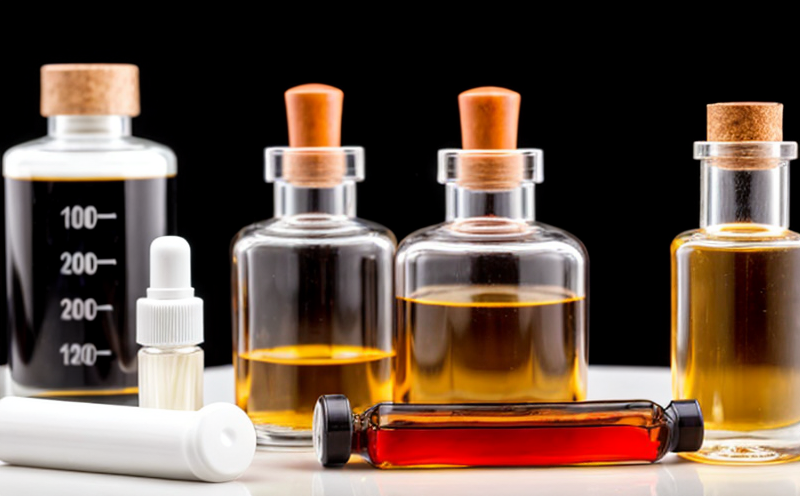EN 13641 Sterility and Chemical Residue Testing
The EN 13641 standard is a cornerstone in pharmaceutical quality assurance, ensuring that medical devices used in healthcare settings are both sterile and free from harmful chemical residues. This service plays a pivotal role for quality managers, compliance officers, R&D engineers, and procurement teams by providing comprehensive testing to meet regulatory requirements.
The sterility test evaluates the integrity of medical device packaging before sterilization, ensuring that no microorganisms can pass through. The chemical residue test focuses on identifying any potentially harmful residues left over from manufacturing processes such as lubricants or solvents. Compliance with EN 13641 is crucial for maintaining patient safety and product reliability in healthcare.
The testing process involves several steps: initial sample preparation, incubation under controlled conditions to promote potential contamination growth, visual inspection of the package integrity, and finally microbiological examination using culture methods or rapid detection systems. Similarly, chemical residue analysis uses spectroscopy and chromatography techniques to ensure no trace amounts remain that could affect patient health.
Our laboratory adheres strictly to ISO 15189 accreditation standards which guarantee our proficiency in delivering accurate results consistently across all tests performed here. By choosing us for your EN 13641 compliance needs, you can rest assured knowing we will provide reliable data that supports successful product launches into international markets.
In summary, adhering to the requirements outlined in EN 13641 ensures not only legal adherence but also enhances brand reputation and customer trust. With our expertise and state-of-the-art facilities, we are dedicated to helping you meet these rigorous standards efficiently while maintaining high levels of product integrity.
Industry Applications
| Application Area | Description |
|---|---|
| Sterility Testing | Determining whether a medical device is free from viable microorganisms. |
| Chemical Residue Analysis | Evaluating the level of non-volatile organic compounds present on or within a product. |
- Sterility testing ensures patient safety by preventing infections caused by contaminated devices.
- Chemical residue analysis helps identify potential allergens or toxic substances that could harm patients.
This service is essential for manufacturers of medical devices, ensuring their products meet stringent regulatory requirements before reaching the market. By adhering to these standards, companies can enhance patient confidence and ensure long-term reliability.
Customer Impact and Satisfaction
Implementing EN 13641 sterility and chemical residue testing brings significant benefits for pharmaceutical manufacturers. Not only does it protect patients by ensuring safe, effective products, but it also enhances brand reputation through adherence to international standards.
The detailed reports generated from our tests provide clear evidence of compliance with regulatory bodies like the European Commission, thereby reducing risks associated with non-compliance penalties or recalls.
Our commitment to accuracy and efficiency ensures that manufacturers can trust us to deliver timely results. This helps streamline their product development pipelines and reduces delays in bringing new treatments to market.
We strive to exceed expectations by offering personalized services tailored to each customer’s unique needs, whether it's small-scale prototyping or large-scale production runs. Our experienced team works closely with clients throughout the testing process, providing guidance at every stage.
Environmental and Sustainability Contributions
The EN 13641 compliance service contributes positively to environmental sustainability by promoting responsible manufacturing practices. By ensuring that medical devices are free from harmful residues, we minimize waste generation during end-of-life disposal.
This reduces the burden on landfills and encourages recycling efforts among healthcare facilities. Moreover, our rigorous sterility testing ensures that only safe products reach patients, reducing unnecessary rejections or returns which could otherwise lead to increased resource consumption.
Our focus on sustainability extends beyond just the manufacturing process; it encompasses all aspects of our operations, from energy-efficient laboratory equipment to waste management practices. By prioritizing these factors, we contribute towards a more sustainable future while maintaining uncompromising product quality standards.





